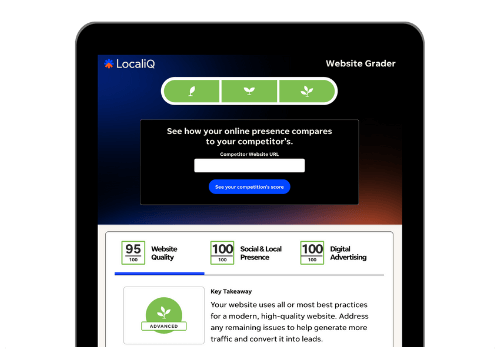After a tumultuous two+ years, the last thing anybody–especially small businesses–wants to think about is the likelihood of a recession. Yet here we are.
The reality is that the economy has been contracting, we’re seeing the highest level of inflation in over 40 years, and the housing market is still extremely volatile. A recession seems to be looming–if not already here.

So what can we do about it? As a small business owner, there are steps you can take to recession-proof your business. Here, we’ll share:
- What you need to know about a recession
- How a recession can impact small businesses
- Why we think small businesses can survive a recession
- Steps to take to recession-proof your small business
Let’s dive in.
What is a recession?
First, what is a recession? In the past, a recession often was defined as when we experienced two straight quarters of declines in GDP.
But now the official declaration of a recession is by the National Bureau of Economic Research (NBER), and specifically its Business Cycle Dating Committee. This is a group of eight members who certify and date U.S. business cycles and officially defines a recession as “a significant decline in economic activity that is spread across the economy and that lasts more than a few months.”

Is there going to be a recession?
This is the question many business experts, business owners, and consumers are pondering right now. And the official declaration of recessions by NBER occurs many months after a recession has started. So the answer is more complicated than a simple “yes” or “no.”
Here’s what we know:
- On July 28, official numbers were released that showed the US GDP fell for the second straight quarter.
- The consumer price index jumped to the highest level in 40 years. The cost of living has risen by 8.6% compared to a year ago. High gas prices have led to lower demand, which is now driving down prices.
- Despite these numbers, the labor market remains strong. On August 5, the Labor Department shared the U.S. economy added a robust 528,000 jobs in July, recouping the number of payrolls lost in the wake of the pandemic. The unemployment rate also dropped to 3.5%, a half-century low also seen just before the pandemic in early 2020.
- Higher inflation has led to a series of interest-rate hikes that could put the federal funds rate between 3.25% and 3.5% by the end of the year.

So while experts agree we’re not officially in a recession, their outlook doesn’t seem as positive for the last half of 2022 or the beginning of 2023.
The last recession in the U.S., known as The Great Recession, lasted from December 2007 to June 2009. That recession was largely caused by the housing market crash. This period of recession was the longest since World War II.
How a recession can impact small businesses
A recession can impact nearly every business and industry, and small businesses can be especially at risk. Here are some of the top ways recessions can impact small businesses.
Demand
In times of recession, often demand for your product or service will decline. Now this varies quite a bit by sector and geography, but in general, recessions create headwinds for small businesses and often reduce your sales and revenue.
Hiring
Hiring has been a challenge for small businesses over the last year. High demand for employees meant businesses were offering higher wages and better benefits, increasing competition and making it difficult for small businesses to keep up. Small businesses have had to spend more to attract and retain workers, which takes a toll on their bottom lines.

But a recession generally leads to layoffs, which could mean a larger pool of workers for small businesses to source from.
Supply chain issues
The COVID-19 pandemic has contributed to widespread supply chain issues, which has led to a cash flow issue for businesses. Paying more for materials and items, dealing with shortages, and missing out on the products or services needed to keep business moving is difficult for small businesses to handle.
This will likely continue over the next few months (or longer) and make a potential recession even more challenging.
Price adjustments
Increased labor wages, inflation, higher gas prices, and supply chain issues mean many small businesses have been forced to raise prices in order to maintain a favorable profit margin.

Higher prices coupled with a recession could be extremely detrimental to small businesses as they’ll be unable to lower prices at the rate of larger companies should a recession hit.
As consumers have less to spend, they may turn away from the “premiums” of small businesses in favor of corporate giants who have more control over pricing flexibility.
4 reasons small businesses can survive a recession
While these challenges are not ones to take lightly, we strongly believe small businesses can survive, and often thrive in, a recession—especially with the right plan in place. Here’s why.
Small businesses adjusted during the pandemic
Around 80% of small business owners are confident their business will survive a potential recession. They said the top reason they feel that way is because the pandemic has helped them find a greater sense of resilience.
Small businesses had to make the most adjustments to doing business during the pandemic—and they did it well. Those small businesses that have survived the last two years are uniquely positioned to take on new challenges, including a recession.
Small businesses have evolved
And, because of the way small businesses have evolved throughout the pandemic—adopting new systems, taking some of their business online, and diversifying their product and service offerings—they are in an even better place to tackle the challenges of a recession.

Small businesses have learned what works for them in terms of their branding, marketing, and offerings and can capitalize on those even in times of economic hardship.
Recessions actually can create lots of opportunity
Companies can make more dramatic gains or losses during downturns than during stable periods–heightened risk AND opportunity! While there certainly is risk during recessions, opportunities are created by really honing your business strategy and operations to perform well during the downturn, and when the tide changes you can perform much better. Also, during recessions less well-run businesses struggle, opening up opportunity for others.
People are still spending
Right now, people are still spending. It’s partially why the Fed continues to increase interest rates.
Consumer spending increased 1.1% in June.
And, the last few years have put a large focus on the importance of supporting small businesses, so consumers are shopping small and spending locally.
How to recession-proof your small business
Many small business owners are wondering how much more they can endure after the last two years of challenges. A recession is the last thing anyone wants to think about or plan for. But it’s important to be realistic and get a plan in place now to recession-proof your business.
Here are our top ideas to help.
Be customer-centric
When consumers have less to spend, they’re usually pickier on what they buy—and who they buy it from. By identifying key customer needs and ensuring you can meet those needs, you can remain top of mind with consumers even during a recession.
Create a personalized experience
Shoppers seek personalized experiences. And small businesses have a unique opportunity to create that for themselves. As a small business, you’re interacting and engaging with your customers every day. You can connect with them, understand what they’re looking for, and offer it to them.
Plus, small businesses now have access to some of the same technology larger businesses have that can help personalize marketing messages and ad targeting, so you’re no longer behind the curve.

This online retailer generated personalized recommendations in an email to customers.
Carefully manage your cash flow and cut unneeded costs
There are likely areas of your business where you can cut costs. Here are some ways you can do that:
- Understand your costs and profit margins
- Get creative about how you’re spending (and where!)
- Find processes that can be streamlined and automated
- Search for other suppliers
- Stock up on products now
- Cut unnecessary subscriptions, services, and products
We dive into more detail on how to cut business costs here.
Don’t cut marketing costs—just adjust your strategy
When a recession hits, many small businesses feel like they need to completely cut their marketing budgets. But the reality of doing this is more detrimental to your business than you might think. Without a strong marketing strategy in place, it’s going to be nearly impossible to get new customers, which is what you need to do in order to recession-proof your business.
Rather than completely cutting your marketing costs, simply tweak your strategy so you’re focusing your spend on the marketing tactics that will help you meet your goals during a recession.
Of course, there may be times when you need to cut marketing costs or decrease your marketing budget. If that’s the case, prioritize the strategies that bring in new leads and contribute to the customer experience, like your website, live chat, and paid search advertising.
>>Want to know how your website is working to get you new customers? Try our free website grader for an instant score and actionable tips to improve!
Strategically look for growth opportunities
As we shared, interestingly recessions offer great opportunities. Is a competitor struggling and does that open up an opportunity? If you are able, are there businesses you can purchase to help expand? Having some focused bets during these tough times can pay off handsomely as the economy improves.
Start recession-proofing your small business now
A recession seems to be looming. This means now is the time to take steps to recession-proof your small business. Take the lessons you’ve learned over the last two years, cut unneeded costs, and take time to build up that community and connection with your customers so you can position yourself for success no matter the economic climate.
Related Articles
-

12 Types of Marketing Collateral Every Business Needs (+Examples!)
-

29 Crowd-Pleasing Grand Opening Ideas for Your Business (+Tips & Examples!)
-

Campaign Planning: How to Do It Right (+Templates, Tips, & Tools)
-

7 Simple Steps (+Free Template!) to a Growth Strategy That Gets Results
-

9 Ways to Build a Better Brand Reputation

